I'm trying to control a Servo Motor with a PIC18f4550, but before buying one, I'm trying to simulate it on Proteus ISIS, but I'm getting some inconsistencies when setting the angle.
I've tried using a 20ms period and 1ms, 1.167ms, 1.333ms, 1.5ms, 1.667ms or 1.833ms duty cycle and it results in a -69.8° Angle on Proteus MOTOR-PWMSERVO, but using a 2ms duty cycle results in a full 90.0° Angle
#define CONTROL PORTCbits.RC0
#define BUTTON PORTCbits.RC1
const Ang_Neg90 = 1.0;
const Ang_Neg60 = 1.167;
const Ang_Neg30 = 1.333;
const Ang_0 = 1.5;
const Ang_30 = 1.667;
const Ang_60 = 1.833;
const Ang_90 = 2.00;
// ------------------------------------------------- //
void ServoPosition (unsigned float Angle) {
CONTROL = 1;
Delay_ms(Angle);
CONTROL = 0;
Delay_ms(20 - Angle);
}
void main(){
while(1){
ServoPosition(Ang_0);
if (BUTTON == 1){
break;
while(1){
ServoPosition(Ang_90);
}
}
}
}
I want my program to be able to go from 0 degrees to 90 degrees, but all I'm getting is -69.8 to 90. Any ideas of what I'm getting wrong?


